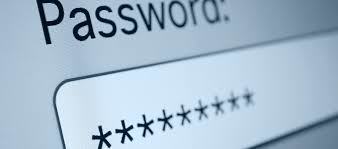Security Tips: Strong Password [INFO]

How to choose a Strong Password
Are your passwords strong enough?
Here are the tips powerful password. If you wanted to hide a little cash, would you just leave a bright yellow post note stuck on the bottom of your keyboard and tell us how to locate it? How about on the top of your monitor? Or under your phone?
Of course not. But in reality, many individuals write down their computer passwords and then maintain them in some locations just waiting for the closest malicious information robber to discover them. That’s because the many passwords we have, let’s say the ones that change every month, are hard to remember. So, of course, we write them on paper, and then we must remember where we kept them.
6 most popular (and therefore worst) places to hide passwords
Write down your passwords and hide them somewhere around your desk or under your chair is the worst thing you can do in safety and security. But individuals do it! These are the most popular places:
- keyboard
- mouse pad
- phone
- desk
- On the monitor
- In your top drawer
The best memory is the one in your head
Anyone who works for IT safety will say this to you: No password is 100% safe, but the best place to maintain it is to memorise them. So, what you have to do is build powerful, unforgettable passwords.
And that’s the problem: many people are concerned that they will forget them, unless their passwords are short and simple. They choose their own name or their children’s names, addresses, birthdays, common numbers like the 8888888 and they use one password for everything, for all their online accounts. (This is clearly not a good idea because, if a hacker manages to discover his password, he will attempt it for every accounts) They mistakenly believe that they are not sufficiently valuable for hackers to want to get at their information, not realising that cybercriminals are ruthless: they’ll take anything they can, no matter who you are ; they can steal your identity and money in a few seconds.
And they can quickly do it. For instance, one “password guesser” that can frequently use just 100,000 combinations, can discover 24% of all passwords and check a number of hundred thousand passwords in just ONE SECOND.
Useful tips strong password to help you create ultra-strong passwords
1. Your password should be long and complex. At least 14 characters are recommended by Use a combination upper- and lower-case of characters, numbers, and punctuations in the top and bottom case. The greater the variety, the better.
2. Do not use full phrases (either spelled or abbreviated) or popular number sequences that appear in the dictionary (any language).
3. Do not use your own birthday or passport number or your family’s number.
4. A nice way to write a phrase in a whole sentence is to write it in code. Do so as follows:
- Choose a phrase that is meaningful for you and which you won’t forget – for example, “I want to go home at 5 o’clock today”.
- Turn your sentence into a series of letters, by using the first letter of each word: “iwtgha5oct”.
- Make only some of the letters (e.g. those in the first half of the alphabet) upper case: “IwtGHA5oCt”.
- Spell a word like “to” as a number: “Iw2GHA5oCt”.
- Use @ instead of “at”: “Iw2GH@5oC”.
- Put two more numbers you will remember in the middle: “Iw2GH19@5oC”.
- Add punctuation: “Iw2GH19??@5oCt” (14 characters)
How to Memorize Passwords
Nearly one-third of people under 30 years of age did not remember their own telephone numbers in a 2007 study of 3.000 people. No wonder we end up writing our passwords on our monitor screens! We have just become too dependent on fast technology access. Sadly, there is no simple solution: you just must improve your memory if you want to remember your passwords.
But if you have a lot of passwords to remember, one thing you could try is keeping the “sentence” of the password the same, and just adding three characters from the name of the site – for example, “Iw2GH19??@5oCtYaH” (Yahoo), or “Iw2GH19??@5oCtFaC” (Facebook), or “Iw2GH19??@5oCtBaN” (bank).
Easy for you; tricky for hackers. The Microsoft Password Check rates the one we created above as “Strong”. You can probably do even better.
[1] Ian Robertson, Professor of Psychology at the Institute of Neuroscience and School of Psychology at Trinity College in Dublin, Ireland
Keep in mind that you should always generate a strong password to strengthen the security. Kindly visit our Knowledge Base (Topics: Security) for more information.



